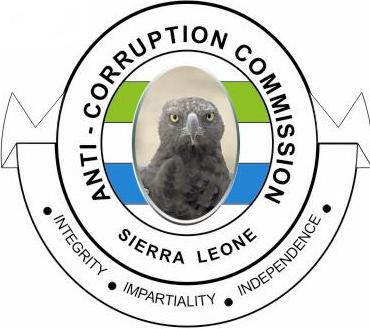Anti-Corruption, Anti-Poverty:
ACC Monitors Direct Cash Transfer To Extremely Poor People
The brutal civil war ended in Sierra Leone leaving almost half of the population in poverty. The battered State struggled to jumpstart itself into motion, into building physical infrastructures – churning out electricity, reengineering good roads; into implementing social programmes – providing and distributing safe drinking water, enhancing education, addressing maternal and infant mortality; and into developing and implementing policies that would regulate behaviors, command obedience, and unlock the impoverished lives of the entrapped lots.
Since 2002 Sierra Leone has witnessed implementation of innumerable development projects encapsulated in the PRSP I & II, and in the Agenda for Change and Prosperity, aimed at uplifting itself from the rungs of Human Development Index. The A4P, among other things, seeks to alleviate poverty, and aspires to create social utilities for the enjoyment of basic livelihoods for everyone.
The concept livelihood is a complex social phenomenon that has taken and continues to take center stage in policies of successive governments; and in the last six months or so, government through National Commission for Social Action (NaCSA), supported by World Bank and UNICEF, has rolled out a direct cash transfer program to extremely poor people in piloted chiefdoms across the country. The Social Safety Net (SSN) and Rapid Ebola Social Safety Net (RESSN) are designed to alleviate poverty in the lives of indigent Sierra Leoneans by transferring direct cash into their hands of a total of One Million One Hundred and Ten Thousand Leones (Le. 1,110,000) per year to unchain their prosperity to venture into profitable businesses, send their children to school, and to afford a decent living. Over ten billion Leones have been transferred to over fifteen thousand underprivileged Sierra Leoneans in the Western Urban and Rural areas; the North – in Port Loko, Kambia, Makeni, Kamakwei, Kabala, Mile 91; the East – in Kono, Kailahun, Daru, Kenema; and the South – in Bo, Pujehun, Moyamba and Bonthe. The SSN is a pilot project to last for two years with a possibility for extension.
The Anti-Corruption Commission (ACC) is implementing the Grievance Redress Mechanism (GRM) component of the SSN. We will revert to this later.
The SSN and RESSN target households and the cash is handed to a woman on behalf of the household and she is expected to sit with the unit and plan its utilization. It is deliberate, and meant to empower women, bearing in mind the role they play in the home –looking after the children, nursing the husband, and providing upkeep.
Qualification for enrollment into the program is uncompromisingly tough, perhaps a mechanism to identify the actually vulnerable people. It must be ascertained that the household lives in a makeshift structure, has no standing kitchen, is without livestock – even a fowl, does not have a proper latrine, and must be seen to be poor at first sight, without doubt.
To ensure proper identification of target beneficiaries, the Commission undertakes laborious sensitization exercises to create awareness on the requirements for enrollment, the purposes of the project, and complaint mechanisms-the GRM. ACC works closely with NaCSA and local officials in the identification process of potential beneficiaries to prevent favoritism, nepotism and avenues for bribery. Under the watchful eye of the Commission it has ensured direct cash transfer of over five billion Leones to over fifteen thousand beneficiaries without a single cent escaping or comfortably landing in the hands of unscrupulous individuals. This does not mean arrests have not been made of certain corrupt individuals attempting to extort monies from beneficiaries. In fact, in the Bumpe Ngao Chiefdom, Bo District, a town chief, a teacher and a councilor were arrested for extorting monies from beneficiaries that had received payment under RESSN.
Additionally, instances of underpayment at some payment points – where payment officers knowingly or unknowingly will want to take advantage over the largely illiterate beneficiaries who cannot properly count 1,110,000 Leones, and over some that will excitedly conceal the cash into their “Lappa” or brasseries, to avoid notice – have been reported and addressed on the spot by correcting the payment. And where underpayment becomes persistent, arrest will be made. One fact ACC monitors are grappling with is that our people in the provinces do not count large volume of money in the open. For them it is safe to happily clutch the sum into some hiding and walk home. So, it is the job of the ACC to ensure counting. It is the ACC that ensures correctness of payment. It is the ACC that ensures transparency in the process and addresses delays of payment or unnecessary bottlenecks. It is the ACC that receives and processes complaints, dissatisfactions, or grievances arising in the identification or payment process. It is the ACC! SSN and RESSN are cash-laden projects of landmark proportions. A historic anti-poverty program. This fluorescent prosperity for the poor, unleashed to unlock the yoke of hardship through women, is heading for a one hundred percent success. And this cannot be achieved without the ACC. Apparently, one of the approaches we now know to eradicating corruption in Sierra Leone is by alleviating poverty; therefore, anti-poverty programmes are synonymous with anti-corruption programmes. They complement each other.
By: Alimamy Lahai Kamara
Stay with Sierra Express Media, for your trusted place in news!
© 2015, https:. All rights reserved.






